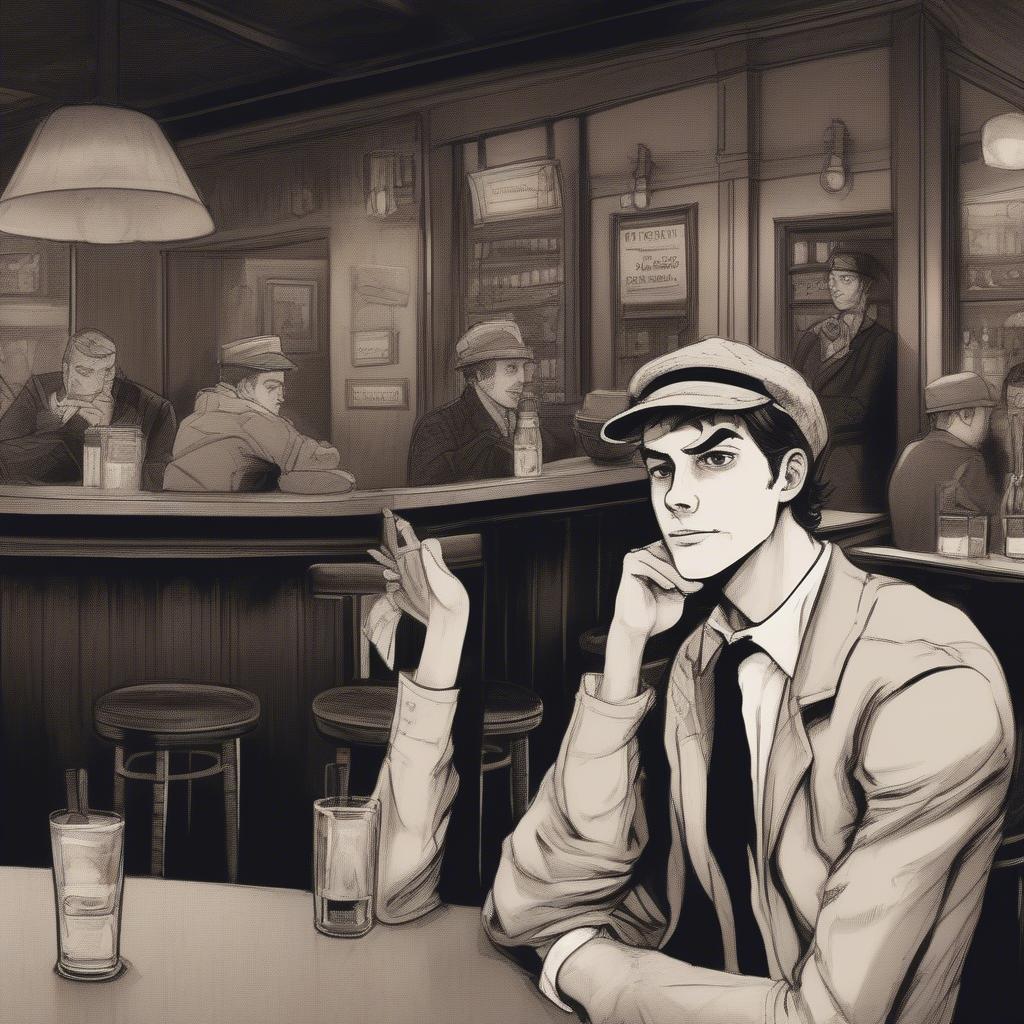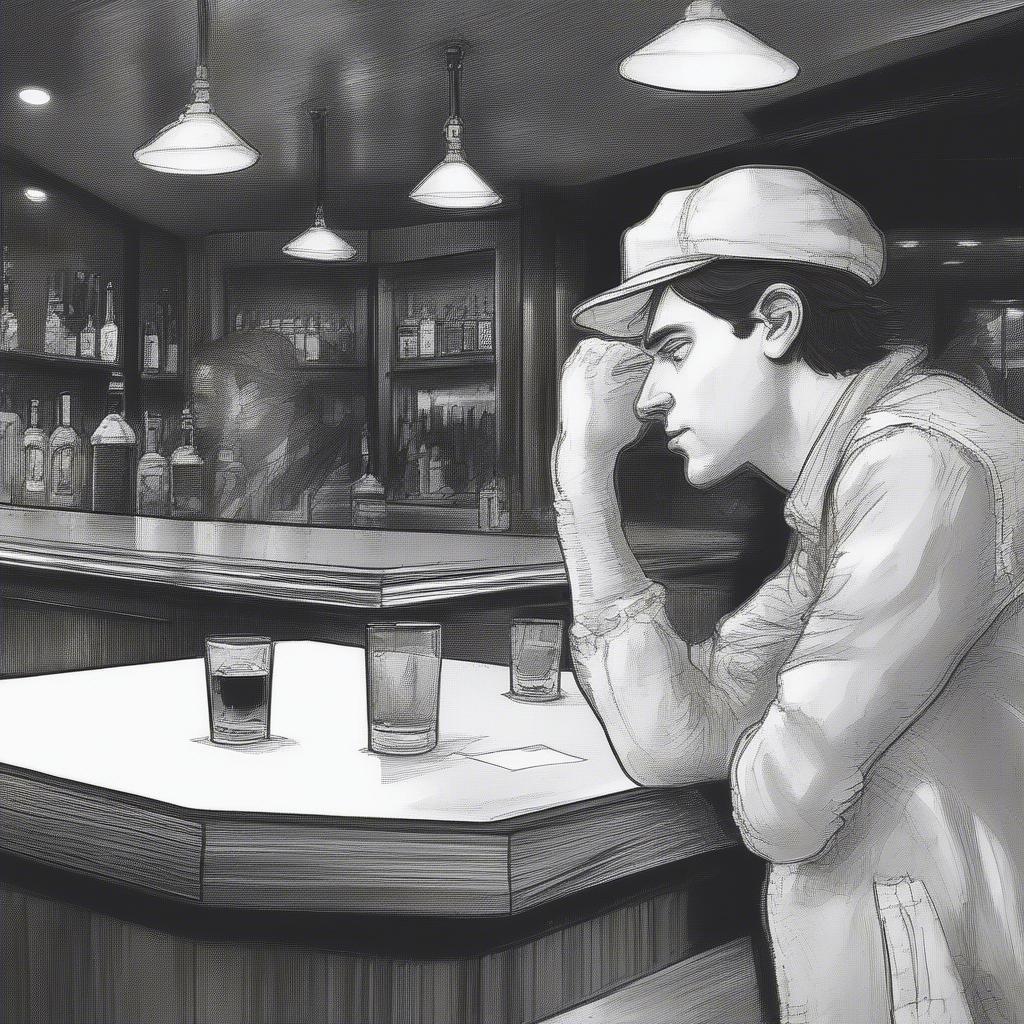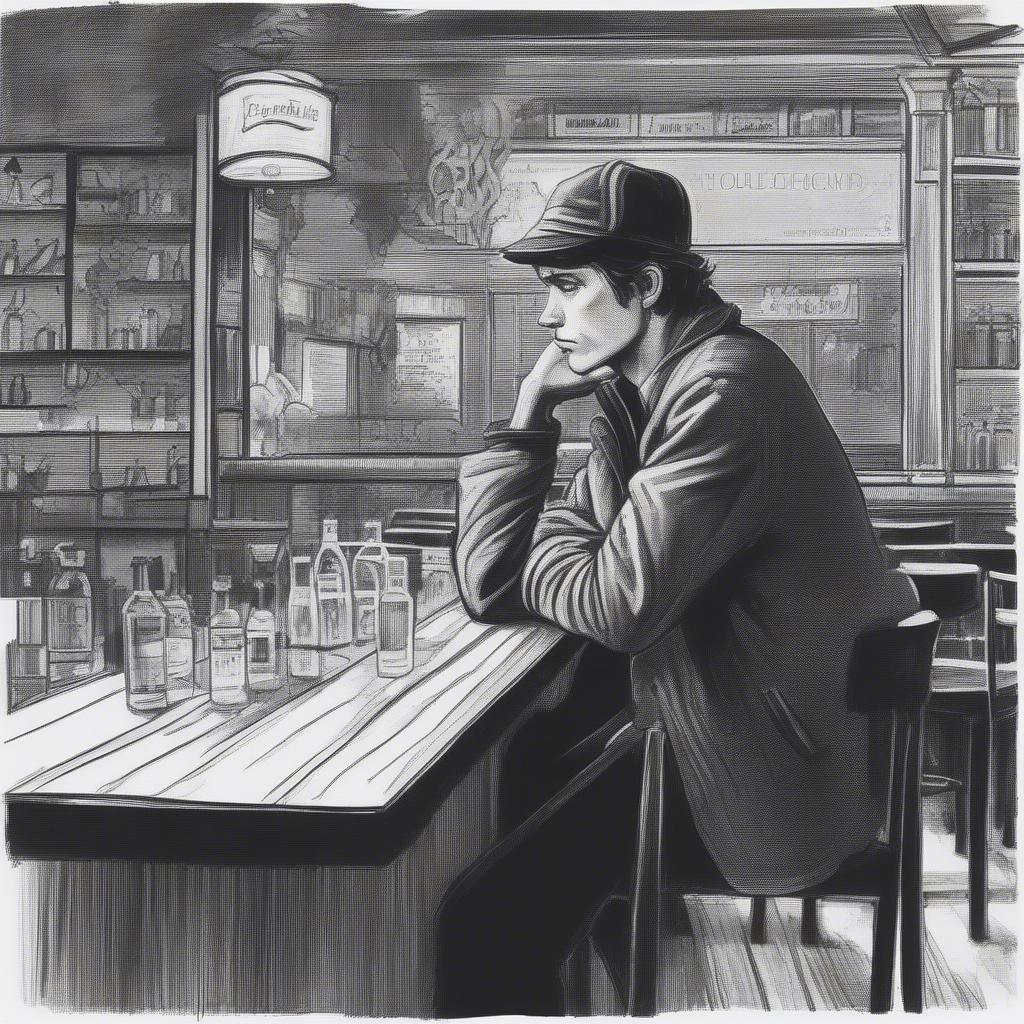Holden Caulfield’s description of the Wicker Bar in J.D. Salinger’s The Catcher in the Rye offers a glimpse into his complex character and the societal anxieties of the 1950s. This article explores how Holden perceives this sophisticated New York establishment, analyzing his language and revealing the deeper meaning behind his observations. We’ll delve into his descriptions, examining how they contribute to the novel’s themes and offer insight into Holden’s alienation and search for authenticity.
Holden’s disdain for the “phony” world of adults is a central theme in Catcher in the Rye, and the Wicker Bar serves as a prime example of this perceived superficiality. His descriptions of the bar, its patrons, and the overall atmosphere reflect his critical and often cynical perspective.
Holden’s Disdain for the “Phony” Wicker Bar
Holden’s encounters at the Wicker Bar are characterized by his feelings of discomfort and detachment. He uses words like “phony,” “corny,” and “cliquey” to describe the people he observes, highlighting his alienation from the adult world. He finds the conversations shallow, the laughter forced, and the overall atmosphere pretentious. This setting further emphasizes Holden’s struggle to connect with others and his search for genuine human connection.
 Holden's Disdain at the Wicker Bar
Holden's Disdain at the Wicker Bar
The Wicker Bar as a Symbol of Adult Superficiality
The Wicker Bar symbolizes the adult world that Holden rejects. He sees it as a place where people prioritize appearances and social status over genuine connection. The bar’s name itself, “Wicker,” evokes images of artificiality and constructed elegance, mirroring Holden’s perception of the people who frequent it. He views their interactions as performative and lacking in substance, further reinforcing his sense of isolation.
What Does Holden’s Description Reveal About Him?
Holden’s descriptions of the Wicker Bar reveal much about his own internal struggles. His critical observations are not simply judgments of others, but also reflections of his own insecurities and anxieties. His discomfort in this environment reveals his yearning for authenticity and his difficulty navigating the complexities of social interaction.
 Holden's Internal Struggle Reflected in the Wicker Bar
Holden's Internal Struggle Reflected in the Wicker Bar
Holden’s Language and Tone
Holden’s distinctive voice and use of colloquial language further enhance his descriptions of the Wicker Bar. He uses slang and informal expressions to convey his disdain, adding to the authenticity of his narrative. His tone is often sarcastic and cynical, reflecting his disillusionment with the adult world.
Why Does Holden Go to the Wicker Bar?
Despite his negative feelings, Holden repeatedly visits the Wicker Bar. This seemingly contradictory behavior suggests a deeper motivation. He may be drawn to the bar out of a desire to connect with someone, even in a place he finds phony. His visits might also represent a morbid curiosity, a need to witness the world he rejects firsthand.
Searching for Connection in a “Phony” Place
Holden’s presence at the Wicker Bar, despite his dislike for it, highlights his underlying loneliness and desire for connection. He seeks out human interaction, even if it’s in a setting he finds superficial, demonstrating his conflicted feelings about the adult world.
 Holden Searching for Connection at the Wicker Bar
Holden Searching for Connection at the Wicker Bar
Conclusion: The Wicker Bar as a Microcosm of Holden’s World
Holden’s description of the Wicker Bar in The Catcher in the Rye is more than just a setting; it’s a microcosm of the adult world he finds so alienating. His observations of the bar’s patrons, the atmosphere, and his own reactions reveal his complex character and the central themes of the novel: the search for authenticity, the struggle with adolescence, and the challenge of finding genuine human connection in a world perceived as phony. Understanding how Holden describes the Wicker Bar offers valuable insights into his journey and the enduring power of Salinger’s classic novel.
FAQ
- What is the significance of the Wicker Bar in The Catcher in the Rye?
- How does Holden’s language contribute to his description of the Wicker Bar?
- What does the Wicker Bar symbolize in the novel?
- Why does Holden go to the Wicker Bar despite his negative feelings about it?
- How does Holden’s description of the Wicker Bar relate to the themes of The Catcher in the Rye?
- What are some key words Holden uses to describe the Wicker Bar and its patrons?
- How does Holden’s experience at the Wicker Bar contribute to his overall sense of alienation?
Further Exploration
Explore other articles on our website about The Catcher in the Rye:
- Holden’s Relationships with Other Characters
- The Symbolism of the Red Hunting Hat
- Holden’s Search for Authenticity
Need assistance? Contact our 24/7 customer support hotline: +84 388 951 999. Our offices are located in My Dinh, Hanoi, Vietnam and San Francisco, CA 94105, USA.


